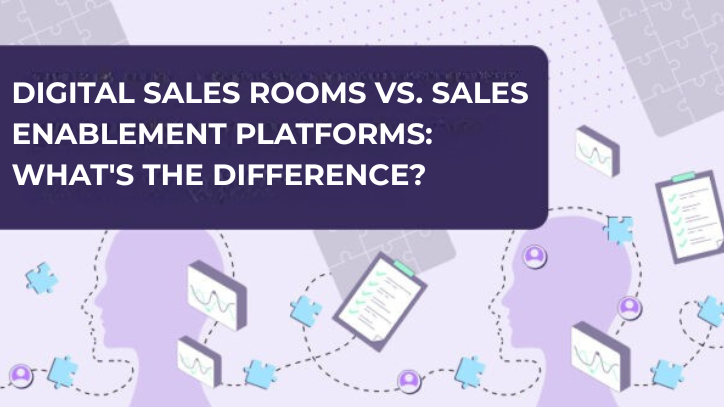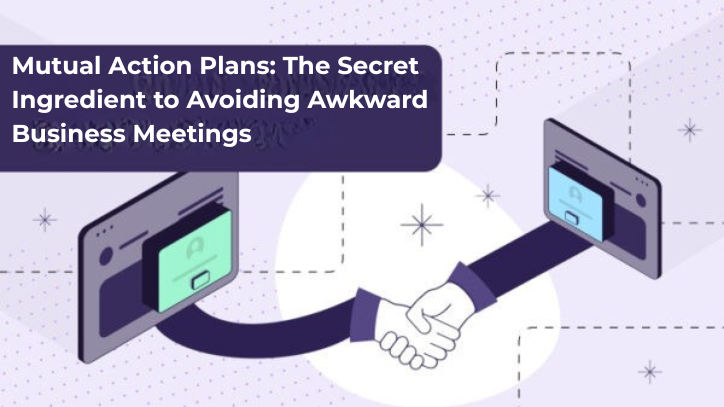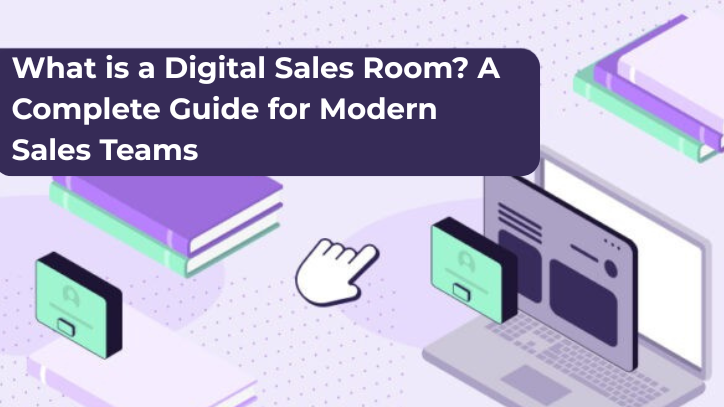It’s a tale as old as time. A love-hate, can’t-live-with-can’t-live-without relationship that brings tears of frustration and sighs of contempt to both parties almost whenever the other one is mentioned.
No, I’m not talking about Ross and Rachel. I’m talking about their SaaS team counterparts: Sales and Legal.
(I’ll let you decide who is who).
Sales and legal teams have often been portrayed as heated rivals that hold conflicting interests and goals. Many times, sales teams see the legal team as a bottleneck or roadblock that’s only there to rain on their parade. Likewise, most in-house legal counsels would agree that at least at some point in their career they felt that the sales team is a group of reckless risk-takers.
Well, I’m here today to say: NO MORE!
It’s time we put these stereotypes to rest. That’s why I wrote this blog to give a few tips on how to foster a positive and productive relationship with legal counsels, like myself, and explore the idea of why legal should actually be your best friend (or at least not a pain in your ass).
Why should sales teams want to become friends with legal?
Now, just in case you’re already starting to sweat when you think of having to befriend legal, here’s what’s in it for you.
Building a trusting and healthy relationship with your legal team will become a great resource for accelerating deal cycles while still reducing risk. By establishing mutual rapport and healthy collaboration you will:
- Enable your legal counsel to ensure efficient and seamless sales cycles by establishing clear and unambiguous workflows and processes.
- Get exactly what you need when you need it (more about that below).
- Transition your legal counsel from a pain in your ass to a true business partner. As a result, your legal counsel will actually help you make better deals, instead of breaking them (a dream come true, right?).
In other words, you’ll enjoy a higher level of independence and flexibility when negotiating and closing deals. Which basically means improving your time to close.
Top 5 ways for sales teams to improve their collaboration with legal
Ok, because I’m a lawyer, I can’t stop myself from giving one small caveat before I list my tips: Every organization has a different culture and works differently, so the specifics will vary depending on your organization.
That said, I believe the overall principles I will share with you could (and should) be implemented in every organization throughout the world.
Anyhow, let’s get to how to build a good relationship with your legal team:
1. Keep us in the loop about your strategy and pipeline.
First and foremost, it’s crucial for us to know about your team’s objectives, targets, and focuses. This way we can properly prepare and prioritize the deals that come through and make sure we handle each one efficiently.
Provide us with visibility into your pipeline and let us know which deals in your pipeline are crucial for the business. Sync periodically to give us updates, invite us to join your strategy sessions, and keep all the relevant information flowing.
This way, when it’s the 11th hour and you need the contract reviewed and finalized, we’ll be prepared and ready to go.
2. Engage us at an early stage.
And this brings us to our next point.
The surest way to close deals as fast as you want to is to get us on board early. Remember that we need to painstakingly go through all those terms and conditions and legal documents nobody wants to read—and that takes time.
One of the most annoying things salespeople do to legal teams is when they come to them with a super urgent deal that needs to be signed tomorrow. We get that adding pressure is great to get the better deal, but if there is something specific that needs to change (like providing a discount, new SLA, or something like that) we need time so that we can solve your problems.
And remember: we don’t just work for you! We also have to mitigate all the things other departments are up to (including marketing’s nonsense, not to mention them forcing me to write this blog) and we really don’t wanna be a bottleneck.
3. Don’t hide from us.
If you want the legal process to not suck, you need to show us we can trust you.
Be transparent and give us all the facts we need because knowledge is power. And the more we know, the better equipped we are to provide you with whatever you need.
So, what type of information are we talking about? Beyond just the standard details, we want you to let us know if you have any doubt or uncertainty about the prospect’s use case, if you mistakenly said something you were not supposed to, or if any red flags come up while working on the deal.
If we have the information, we can be more flexible and we can actually take action to protect the business.
While this may sound scary (because of course, we are legal), don’t just assume that we are going to block a deal you’re working on or hinder the deal in any way.
We also want and need the company to be successful, which includes closing deals. But there are occasions when a deal can put the company at risk. And we are more than capable of mitigating that risk.
So, whenever we are talking to you about confidentiality and compliance, remember these are the things we need for us to do our jobs. I know these are two of the most boring words in the English dictionary, but this is part of what matters to people like us who were crazy enough to go to law school.
4. Be vocal about your needs.
We can’t read your minds. We wish we could because then we probably would have found a cooler job than being lawyers.
So as a result of this tragic birth defect, we need you to make it super clear what you need from us so that we can provide it for you.
By maintaining a feedback loop for the sales-legal collaboration, you will increase productivity and efficiency. And hopefully, reduce the level of frustration both parties are facing with each other.
Did you win or lose a deal because of the MSAs? Let us know and we can improve current contracts or even draft new ones that are built based on your needs, your prospect’s needs, and the company’s needs. Need certain contracts to include specific terms and conditions? No problem! Just let us know in a structured and organized way so that we can give you everything you dreamed of (if it’s legally possible, of course).
This applies to your ideal operations and processes as well. Let us know if you believe they can be improved and changed to become more efficient and better accommodate your needs. Rest assured legal counsels will be more than happy to work together and discuss how to best make it work for both teams.
You may be surprised by how a well-drafted MSA or improved legal processes can improve the time to close and reduce the number of redlines you are facing.
5. Follow our guidelines and requests.
This may surprise you, but we aren’t trying to make your life difficult.
I know that sales teams often look at legal’s guidelines as purely technical bureaucracy that can be disregarded or even ignored. But as a result of doing this, you run the risk of making huge mistakes that can cause significant frustration for the legal team and the business as a whole.
Remember that each and every one of these mistakes can turn into months of not getting paid by your customers. Not only that, but it will also cost the company hours that we will have to spend working on fixing these mistakes.
And then there are the other large issues that can result from not following the legal guidance, like damaging the way the company looks in front of its customers, investors, and prospects. On top of this, there are the well-known risks of being sued, fined by government agencies, or other situations you and your company would like to avoid.
Befriending legal is good for business
I know what drives you sellers, and that’s making more sales, making bigger sales, and doing it all faster.
Well, making legal your friend is a huge part of achieving this.
Legal teams play a pivotal role in ensuring that sales contracts are ironclad, compliant with regulations, and protective of the company’s interests. Their expertise in risk mitigation and contract negotiation as well as their familiarity and involvement in other aspects of the business directly impact the bottom line by reducing potential legal disputes and liabilities.
The more you help us do this, the better we can help you do your job, which is closing deals. By working together, we can accelerate the sales process, close deals faster, and create a more favorable environment for business partnerships. In essence, the synergy between legal and sales is a recipe for success, not only in securing revenue but also in fostering trust and long-term customer relationships.
Because at the end of the day, while our individual team KPIs may be slightly different from each other, we have more in common than you think.





